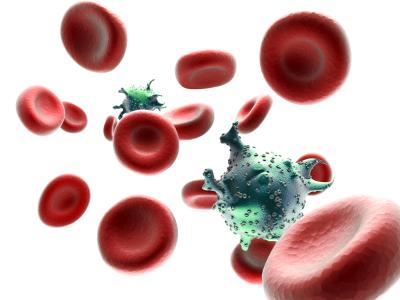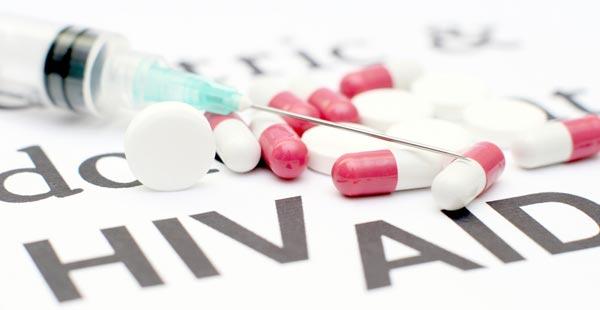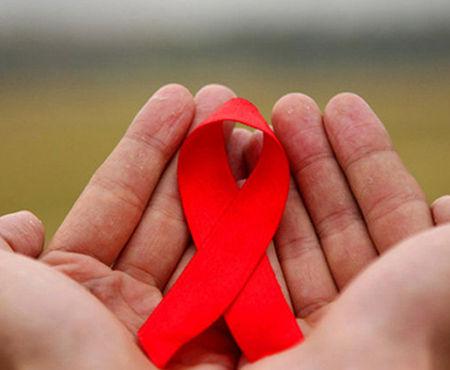How does HIV affect fertility?

Core Tips: HIV, also known as Human Immunodeficiency Virus, is a virus that attacks the human immune system. HIV invades the human body through sexual contact and transfusion of blood or blood products, specifically destroys helper T-lymphocytes, massively phagocytosis and destruction of T4 lymphocytes, thus destroying the human immune system, and ultimately collapsing the immune system, causing the human body to lose the ability to resist various diseases and suffer illnesses and death.
HIV is a virus that attacks the human integumentary system. It targets the T4 lymphoid tissue, the most important part of the body's immune system, destroying it in large numbers and producing highly lethal internal failure. This virus is contagious for life within a geographical area, destroying the immune balance of a person and making the human body a carrier of various diseases.HIV itself does not cause any disease, but when the immune system is destroyed by HIV, the human body loses the opportunity to replicate its immune cells due to low resistance, thus contracting other diseases leading to various compound infections and death. The incubation period of HIV in the human body is 12 to 13 years on average. Before developing into an AIDS patient, the patient looks normal on the outside and they can live and work without any symptoms for many years.
HIV, also known as Human Immunodeficiency Virus, is a virus that attacks the human immune system. HIV invades the human body through sexual contact and transfusion of blood or blood products, and specifically destroys helper T-lymphocytes and phagocytosis of T4 lymphocytes, thus destroying the human immune system, and ultimately collapsing the immune system, causing the human body to lose the ability to resist various diseases, and then develop illnesses and die.
The average incubation period for AIDS is 12 to 13 years Before developing AIDS patients appear normal on the outside and can live and work without any symptoms for many years. This may include an important stage of life: marriage and childbearing. Mother-to-child transmission is still relatively low compared to blood and sexual transmission, but the impact on the health of the baby is enormous.
If a woman is HIV infected or carriers, the first question is whether she can get married and have children? Our marriage law stipulates that people "suffering from diseases that are medically unfit for marriage" cannot get married, but HIV carriers or infected people and AIDS are not objects and diseases that our law prohibits marriage." This is because marriage is not a direct way to spread AIDS. However, HIV infected or carriers who marry must always take precautions to prevent transmission to each other or others.
Although women living with or carrying HIV are legally able to marry and have children, the probability of mother-to-child transmission is around 30% and is likely to infect the fetus through vertical transmission from mother to child via the placenta, and breast milk can be a vector of HIV transmission, resulting in premature births and low birth weight, and a significant proportion of infants will die prematurely of AIDS. According to CDC findings, the vast majority of pediatric HIV/AIDS ≤13 years of age is transmitted from mother to infant. Therefore, women with AIDS should not get married, not to mention that they should not get pregnant or give birth again; those who are married should use contraception or be sterilized, and those who are already pregnant should have an abortion at an early stage of pregnancy, and should not continue to be pregnant, so as to avoid infecting the fetus or newborns with AIDS.
If men are HIV carriers or infected, the poor quality and low quantity of their sperm are certain, and the impact on fertility is obvious. Therefore, it is even more important for unmarried men to be aware of HIV prevention among men.
Therefore, whenever one or both of the married, childless men and women are infected with HIV, it can have a huge impact on childbearing. However, if you insist on having your own baby, it is important that you receive medical counseling before you are ready to have a baby to minimize the mother's impact on the baby.
AIDS, also known as Acquired Immune Deficiency Syndrome, is spread through blood, sexual intercourse and from mother to child. It is a disease of immune system deficiencies that destroys the immune system and eventually leads to a collapse of the immune system, causing infections or specific cancers and death, with an extremely high mortality rate. From a legal point of view, it is legal for AIDS patients to have children, but from a medical point of view, it is advisable to consider it carefully as the effects are very serious. The impact of AIDS on fertility is divided into two main areas, one is the impact of AIDS on fertility in women and the other is the impact of AIDS on fertility in men.

First of all, AIDS can cause weak spermatozoa or oligospermia or even necrospermia in men, which will have a significant impact on fertility. HIV can be transmitted through sexual intercourse, and if the partner is not HIV-positive, pre- and post-exposure treatment should be provided; if the partner has also been diagnosed with HIV, treatment can be provided in an active manner, with the consequences clearly considered, before attempting to conceive.

Secondly, the impact of AIDS on women's fertility is mainly due to the transmission of the disease to the fetus, and mother-to-child transmission accounts for 20% of all AIDS infections. If you have been diagnosed with AIDS, it is not recommended to have a child from the perspective of eugenics. If you find out that you have AIDS after you are pregnant, first of all, you can't hide it from your doctor, who will actively manage and treat the AIDS patient, and you will have the chance to give birth to a healthy baby. It should be emphasized that antiretroviral drugs do not increase the risk of fetal malformations.
In order to be responsible for oneself and for the children of one's family, pre-pregnancy examination is necessary. The State is now actively emphasizing this, and free screening for infectious diseases, including AIDS, is available in the early stages of pregnancy.
Author: Bilowen
AIDS can be reproduced, but the possibility of transmission to the fetus is high, and from the point of view of eugenics, it is better not to have children.
AIDS has a long incubation period in the human body and there are no symptoms during the incubation period. The risk factor of having unsafe sex with people who do not know the details of the disease increases, and in today's more open society, very tolerant interpersonal interactions, especially the middle-aged and elderly people's awareness of the prevention of AIDS should be strengthened.
This question and answer are from the site users, does not represent the position of the site, such as infringement, please contact the administrator to delete.